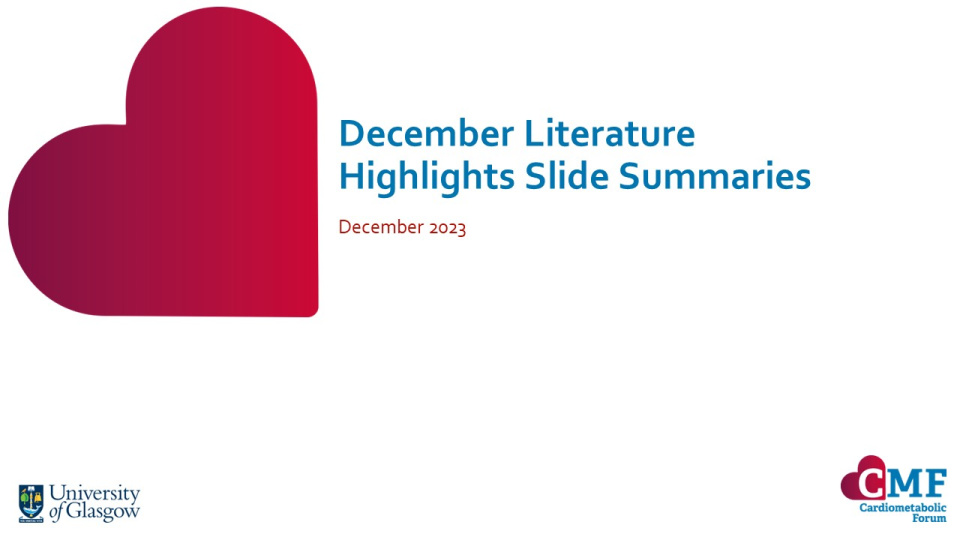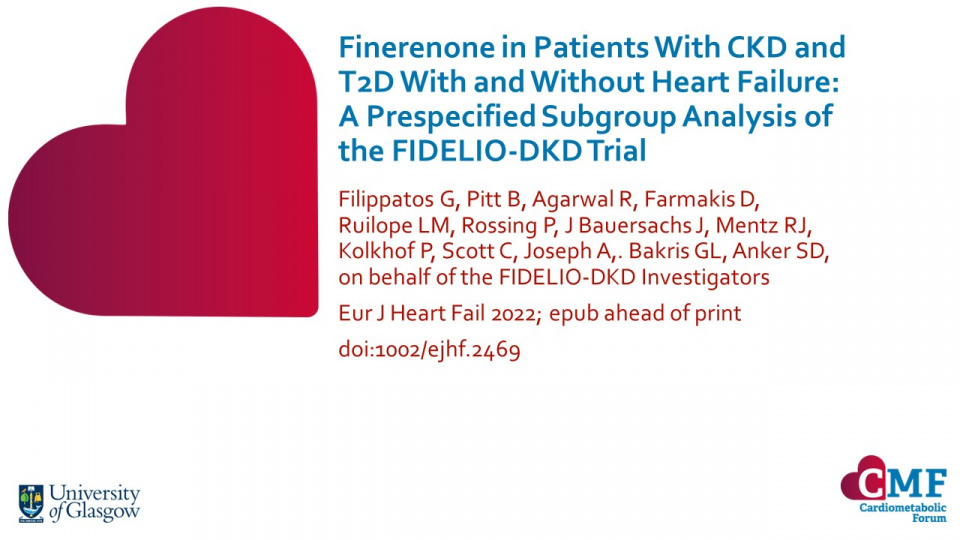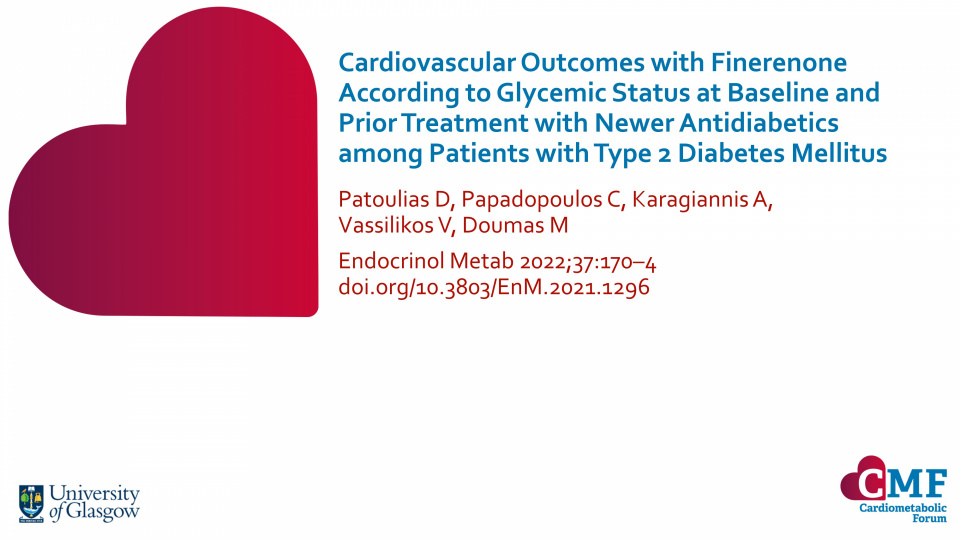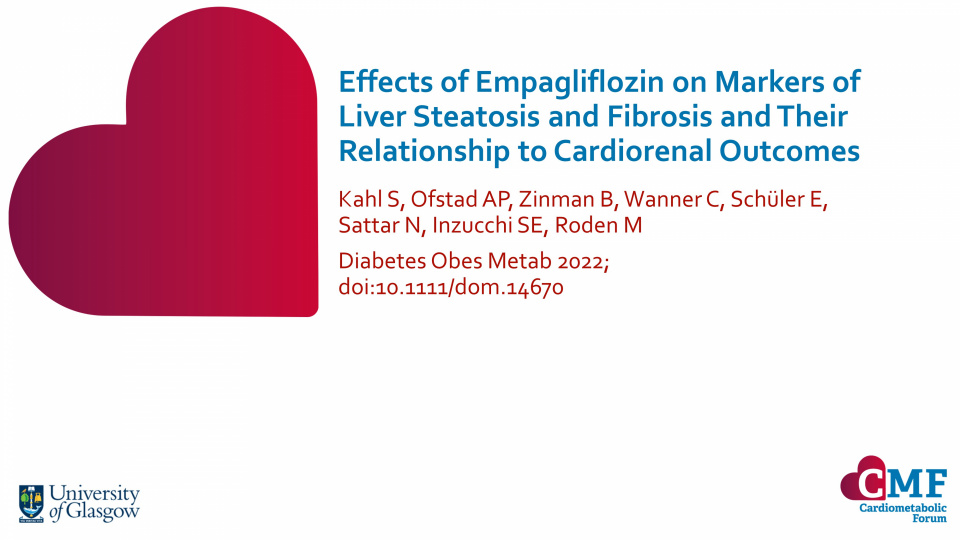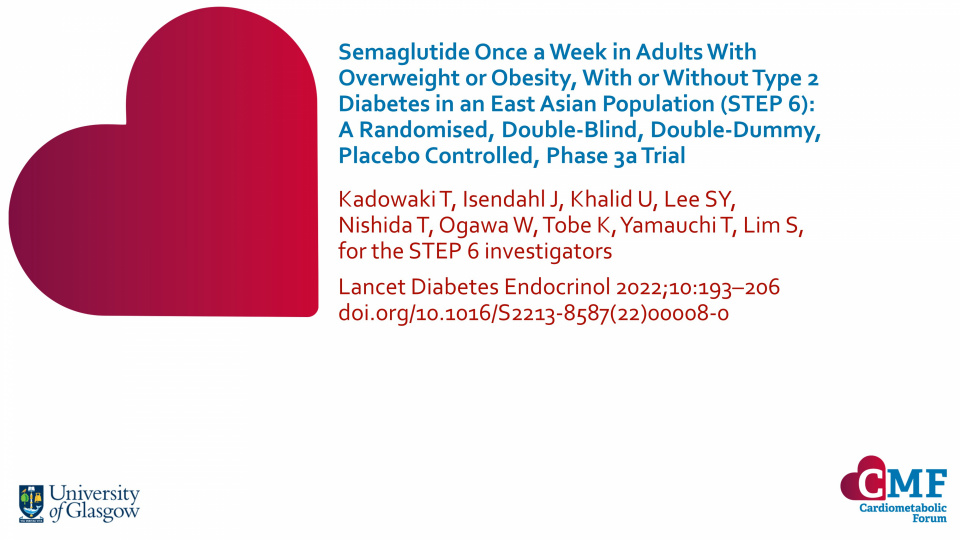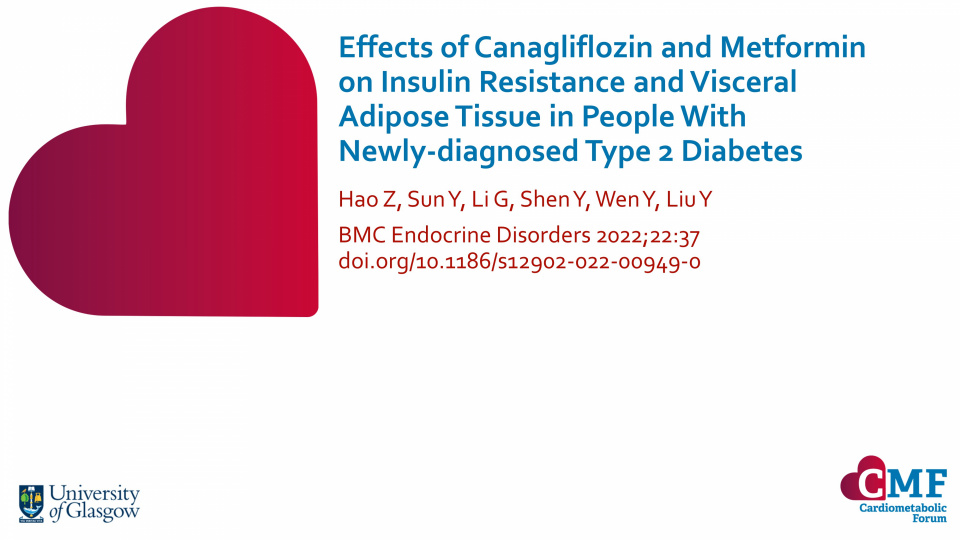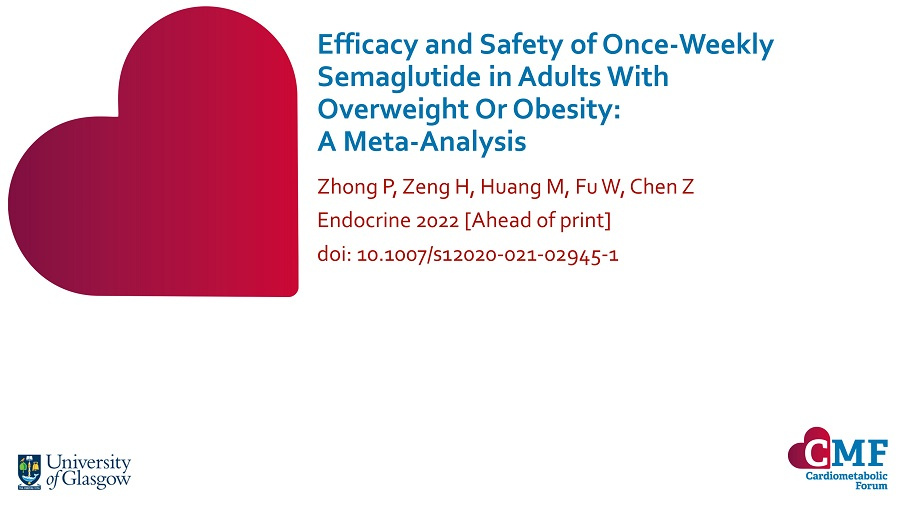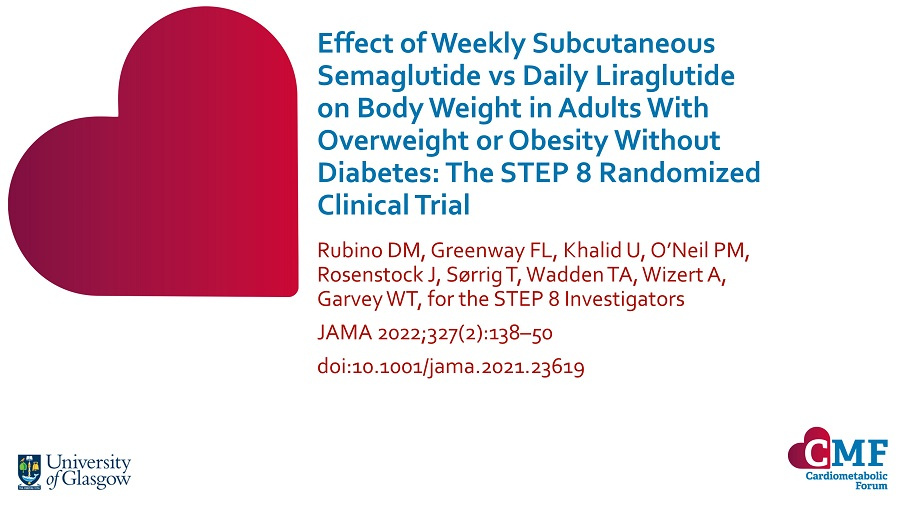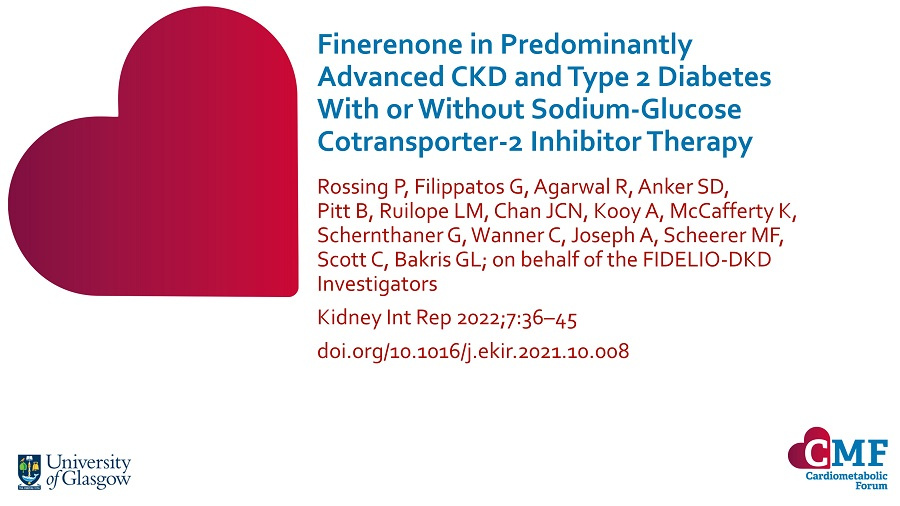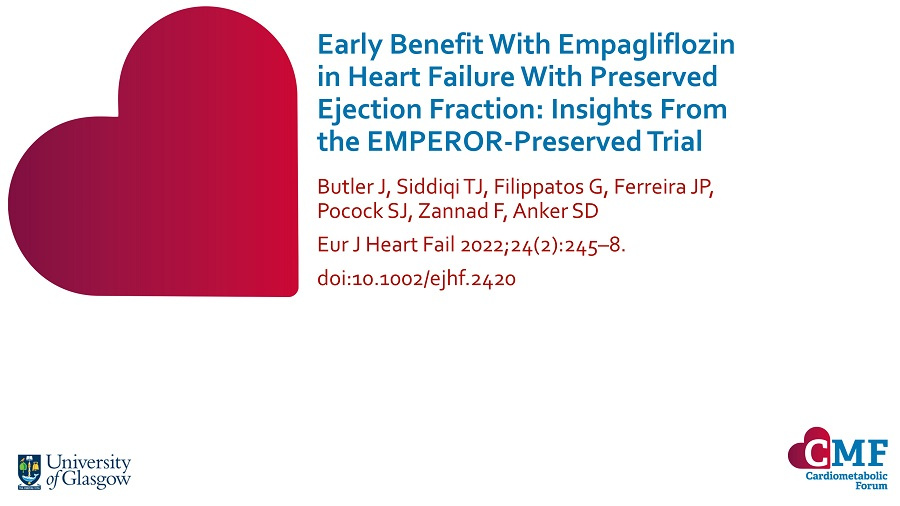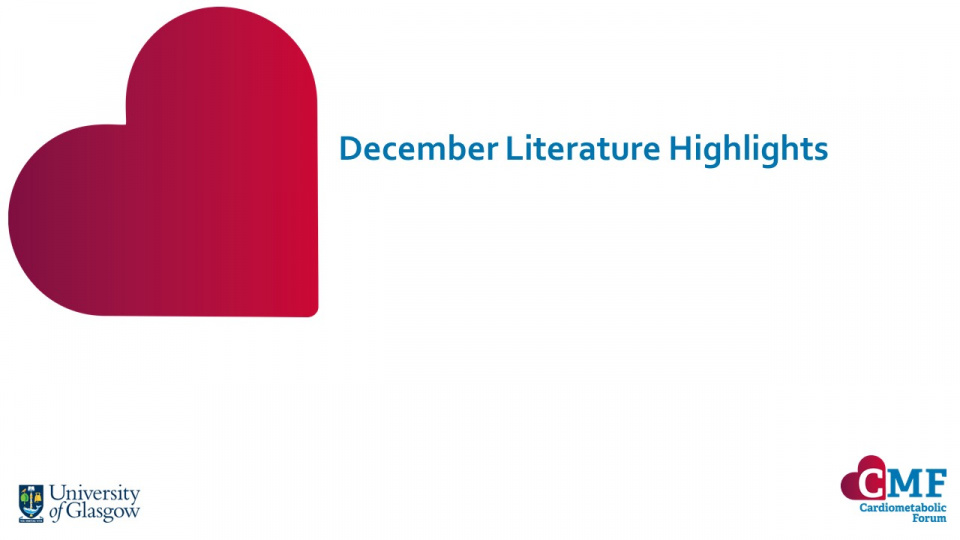Publications
Stay up to date with our literature reviews which are curated by experts to feature the most important publications released each month. Explore our publications for access to concise summary slides for your own use.
Finerenone in patients with CKD and T2D with and without heart failure: A prespecified subgroup analysis of the FIDELIO-DKD trial
PMID: 35239204 DOI: 10.1002/ejhf.2469
This subgroup analysis of the FIDELIO-DKD trial discovered that finerenone improved cardiorenal outcome in patients with chronic kidney disease and type 2 diabetes.
Cardiovascular Outcomes with Finerenone According to Glycemic Status at Baseline and Prior Treatment with Newer Antidiabetics among Patients with Type 2 Diabetes Mellitus
Endocrinol Metab 2022;37:170–4; doi.org/10.3803/EnM.2021.1296
Finerenone induced a 13% risk reduction in MACE (a composite of death from CV causes, nonfatal myocardial infarction, nonfatal stroke, or hospitalisation for heart failure) regardless of prior glycaemia. There was no difference in finerenone-derived MACE benefits whether patients were on baseline SGLT2i or GLP-1RA or not.
Effects of Empagliflozin on Markers of Liver Steatosis and Fibrosis and Their Relationship to Cardiorenal Outcomes
Diabetes Obes Metab 2022; doi:10.1111/dom.14670
In this study of adults with T2D and established CV disease, the proportion of patients at high steatosis risk decreased slightly in patients treated with empagliflozin compared with patients treated with placebo. Fibrosis risk was not reduced.
Semaglutide Once a Week in Adults With Overweight or Obesity, With or Without Type 2 Diabetes in an East Asian Population (STEP 6): A Randomised, Double-Blind, Double-Dummy, Placebo Controlled, Phase 3a Trial
Lancet Diabetes Endocrinol 2022;10:193–206. doi.org/10.1016/S2213-8587(22)00008-0
In this Phase 3a trial in an east Asian population, semaglutide 2.4 mg QW was shown to have superior and clinical meaningful reductions in bodyweight versus placebo, as well as greater reductions in abdominal visceral fat.
Effects of Canagliflozin and Metformin on Insulin Resistance and Visceral Adipose Tissue in People With Newly-diagnosed Type 2 Diabetes
BMC Endocrine Disorders 2022;22:37 doi.org/10.1186/s12902-022-00949-0
In this study of patients with newly-diagnosed (<6 months) T2D, canagliflozin was associated with reduced insulin resistance and visceral adipose tissue compared with placebo.
Efficacy and Safety of Once-Weekly Semaglutide in Adults With Overweight Or Obesity: A Meta-Analysis
Endocrine. 2022;75(3):718–24 doi: 10.1007/s12020-021-02945-1
Semaglutide QW was found to be superior to placebo in percentage change and absolute change in body weight. It also led to significant increases in proportions of patients achieving categorical weight reduction targets.
Effect of Weekly Subcutaneous Semaglutide vs Daily Liraglutide on Body Weight in Adults With Overweight or Obesity Without Diabetes: The STEP 8 Randomized Clinical Trial
JAMA 2022;327(2):138–50 doi:10.1001/jama.2021.23619
Among adults with overweight or obesity without diabetes, QW SC semaglutide compared with QD SC liraglutide – added to counselling for diet and physical activity – resulted in significantly greater weight loss at 68 weeks.
Finerenone in Predominantly Advanced CKD and Type 2 Diabetes With or Without Sodium-Glucose Cotransporter-2 Inhibitor Therapy
Kidney Int Rep 2022;7:36–45 doi.org/10.1016/j.ekir.2021.10.008
Finerenone was associated with a 31% greater reduction in urine albumin:creatinine ratio (UACR) from baseline to Month 4 versus placebo. With similar reductions in UACR seen whether the patient was receiving SGLT2i at baseline or not.
Early Benefit With Empagliflozin in Heart Failure With Preserved Ejection Fraction: Insights From the EMPEROR-Preserved Trial
Eur J Heart Fail 2022;24(2):245–8. doi:10.1002/ejhf.2420
Results reinforce sustained clinical, health status and quality of life benefits with empagliflozin in patients with HF‑pEF, and underscore the need for timely initiation of therapy.
December Literature Highlights
Multiple sources (see slide deck for information)
Single slide summaries of all this month's selected publications.

